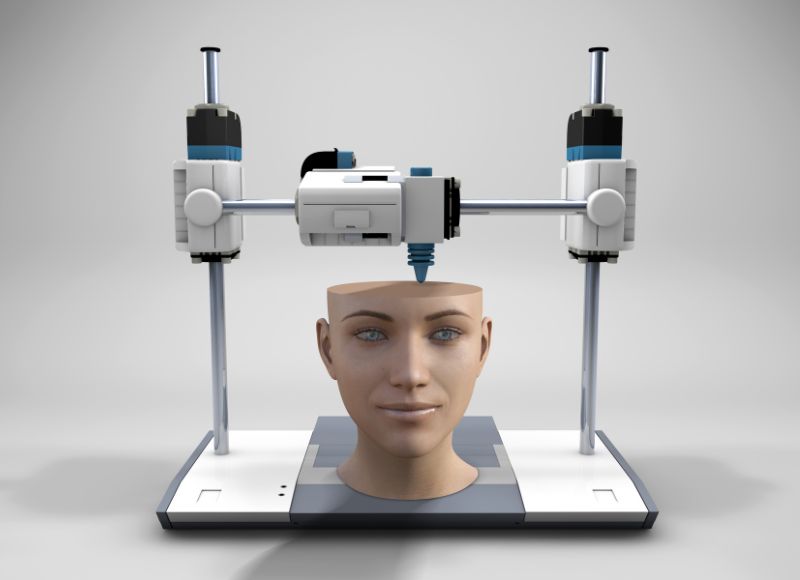Cloning is a technology that has been the subject of much debate and controversy in recent years. In healthcare, the potential of cloning to save lives has been a hotly debated topic. Cloning refers to creating genetically identical copies of an organism or cell. The technology has been used in various fields, including agriculture and research, but its potential for medical applications has been particularly interesting.
The main benefit of cloning is that it can help to save lives by providing new treatments for genetic diseases, creating new organs for transplant, and developing personalized medicine. This article will delve into the potential applications of cloning technology in healthcare. Continue reading to learn more.
Contents
Cloning for Medical Research
 Cloning for medical research is an area that has generated a lot of interest in recent years. By creating genetically identical cells and tissues, scientists can study diseases and test new treatments more effectively. Cloned cells can be used to model diseases, and researchers can study the cells’ behavior in response to various treatments. This can help accelerate the development of new drugs and therapies.
Cloning for medical research is an area that has generated a lot of interest in recent years. By creating genetically identical cells and tissues, scientists can study diseases and test new treatments more effectively. Cloned cells can be used to model diseases, and researchers can study the cells’ behavior in response to various treatments. This can help accelerate the development of new drugs and therapies.
Apart from using cloning for medical research, researchers and biologists are convinced that cloning can also be a drastic revolution in healthcare as it can treat almost incurable diseases like cancer and Parkinson’s. These diseases result from changes in the cell’s structure. We can revert these diseases by modifying the defective cells and using that cells to treat the diseases by cloning within the body.
Organ Cloning for Transplants
Organ transplantation is a life-saving medical procedure that successfully treats end-stage organ failure. However, the shortage of donor organs is a significant problem worldwide, with many patients dying while waiting for a suitable organ. Cloning has the potential to address this issue by creating organs for transplant.
Organ cloning involves taking a patient’s cells and using them to create a genetically identical organ. This can be achieved through a process called somatic cell nuclear transfer (SCNT). In SCNT, the nucleus of a cell is transferred into an egg cell that has had its nucleus removed. The egg cell is then stimulated to begin dividing and developing into an embryo, which can be used to create the cloned organ.
Although organ cloning is still experimental, animal testing has had some recent successes. In the year 2000, scientists were successful in cloning pigs, which could’ve been a source to provide organs for humans, but there were two problems along the way: the presence of a sugar called alpha-gal, which is present in pig cells, not in humans.
In 2002, Researchers and scientists went one step ahead and removed the gene that code for this sugar from the pig cells so they could be used as an organ donor. The further step to use pig organs for human transplants wasn’t carried out due to the potential risk of virus transmission and ethical reasons.
The potential benefits of organ cloning are significant. Firstly, it could reduce the wait time for an organ transplant, which can be years. Secondly, because the cloned organ is genetically identical to the patient, there would be fewer cases of organ rejection. This is because the immune system would not recognize the cloned organ as foreign tissue, reducing the need for immunosuppressive drugs that can have serious side effects.
Cloning for Rare Genetic Disorders
Cloning technology has the potential to revolutionize medical treatment for rare genetic disorders. One of the most promising applications of cloning is the creation of stem cells that can be used to treat various diseases. Cloned stem cells can differentiate into different types of cells and tissues, providing a potential source for replacement therapy.
Recent advances in cloning technology have led to successful treatments using cloned stem cells for a range of disorders, including:
- spinal cord injuries
- type 1 diabetes
- Parkinson’s disease
- amyotrophic lateral sclerosis (ALS)
- Alzheimer’s disease
- heart disease
- stroke
- burns
- cancer
- osteoarthritis
Moreover, scientists in Japan successfully transplanted functional liver cells from cloned stem cells in a neonate, offering new hope for treating liver disease.
The potential benefits of using cloning to treat rare disorders are significant. Patients suffering from rare genetic disorders often have limited treatment options, and current therapies may be ineffective or have serious side effects. Cloning offers a new approach to treatment that can provide effective therapies tailored to the patient’s needs. Additionally, using cloned stem cells for treatment could reduce the risk of rejection and the need for immunosuppressive drugs, potentially improving patient outcomes and reducing healthcare costs.
Ethical Considerations of Cloning
Cloning has been a topic of ethical debate since the first cloned mammal, Dolly the sheep, was born in 1996. While there are many potential benefits to cloning for medical purposes, such as the creation of organs for transplant and the treatment of genetic disorders, there are also concerns about the ethical implications of this technology.
One of the biggest ethical concerns around cloning is the idea of playing God and manipulating life in a previously thought impossible way. Some argue that cloning is inherently wrong because it goes against the natural order of things and disrupts the universe’s balance. Others argue that cloning violates the sanctity of life and that we should not be creating life in a lab.
Another ethical concern is the potential for cloning for nefarious purposes, such as creating “designer babies” with desirable traits. This type of cloning is known as reproductive cloning and is illegal in many countries. On the other hand, cloning for medical purposes is often seen as more ethically justifiable because it can save lives and improve the quality of life for people with genetic disorders.
It’s important to note that cloning for medical purposes differs from cloning for reproductive purposes. In medical cloning, the goal is not to create a genetically identical individual, but rather to create stem cells that can be used to treat a disease or condition. This is known as therapeutic cloning and is considered more ethical than reproductive cloning.
Despite these potential benefits, it’s important to approach cloning technology cautiously and ensure that it is used ethically and responsibly. This includes strict regulation and oversight to prevent cloning technology’s misuse and ensure that it is only used for medical purposes.
 For example, the International Society for Stem Cell Research (ISSCR) has established guidelines for the responsible use of cloning technology in medical research. These guidelines include ensuring that the use of cloning technology is justified by the potential benefits, that the research is conducted transparently and ethically, and that the potential risks and benefits are fully disclosed to research participants.
For example, the International Society for Stem Cell Research (ISSCR) has established guidelines for the responsible use of cloning technology in medical research. These guidelines include ensuring that the use of cloning technology is justified by the potential benefits, that the research is conducted transparently and ethically, and that the potential risks and benefits are fully disclosed to research participants.
In addition to regulation and oversight, engaging in public dialogue about the ethical implications of cloning technology is important. This includes listening to the concerns and perspectives of diverse stakeholders, including patients, scientists, ethicists, and policymakers.
While there are ethical concerns around cloning technology, it has the potential to save lives and improve the quality of life for people with genetic disorders. By approaching cloning technology with caution and ensuring that it is used ethically and responsibly, we can unlock the full potential of this technology to benefit humanity.
Conclusion
Cloning technology has the potential to save lives and revolutionize healthcare. Through cloning, researchers have created stem cells that can be used to treat various rare genetic disorders, develop new treatments for diseases such as cancer and diabetes, and even create organs for transplant. While there are ethical considerations surrounding cloning, it is essential to recognize the differences between cloning for medical purposes versus reproductive purposes.
Despite the progress in cloning technology, continued research is needed to unlock its potential benefits fully. This research should be conducted responsibly and ethically, with appropriate regulation and oversight to ensure the safety and well-being of patients.
In summary, cloning technology offers a promising avenue for improving healthcare and treating various diseases. By leveraging the power of cloning, we can improve the quality of life for patients, reduce healthcare costs, and save lives. It is important to continue exploring this technology while addressing ethical concerns and ensuring responsible use.






